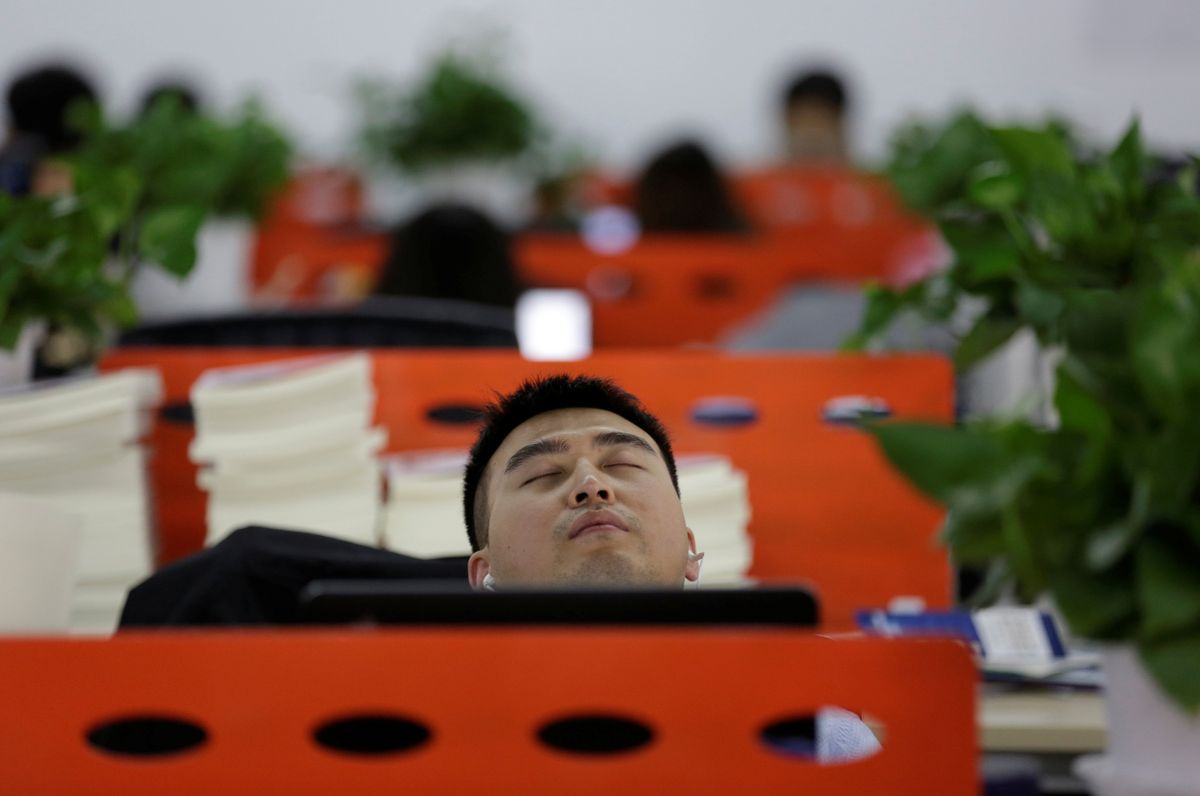Three small numbers are making big waves in China. The digits 9-9-6, a shorthand for 9am to 9pm, six days a week, have become a rallying cry for tech workers frustrated with their bruising work schedules. In recent weeks, what began as a discussion among a few programmers has morphed into a broader debate about working conditions in China's most important industry.
It's a fascinating story, not least because it's a rare example of a labor protest in China organizing and going viral despite the country's sophisticated government-backed censorship.
But the 9-9-6 debate also exposes deeper tensions within the Chinese system:
China's political ideals vs its capitalist growth engine: Under the Communist Party, China is meant to be a workers' paradise, but labor laws limiting work to 40 hours per week plus 36 hours of overtime per month are rarely enforced. China is the only country in the world that's come close to replicating the success of Silicon Valley, partly because of workers' willingness to submit to the grind. But life is short, and as living standards rise, it's inevitable that well-to-do tech workers with globally attractive skills will start to demand more free time.
Tech billionaires vs "worker bees": Leading Chinese tech entrepreneurs have pushed back against complaints about the 9-9-6 movement, effectively saying, "suck it up, slackers!" Jack Ma, the billionaire founder of e-commerce giant Alibaba (and a member of China's Communist Party), said tech workers should consider it a privilege to work such a tough schedule. Another Chinese billionaire, JD.com founder Richard Liu, warned the company's future would be in jeopardy if people were no longer willing to put in the time, saying "slackers are not my brothers."
But here's the problem: Both the Chinese government and industry bosses need obedient tech workers. China's technology industry is increasingly the engine of its economy. The government needs tech workers to keep living standards rising across the country and create new economic opportunities as growth starts to slow. Tech companies need their high-skilled workers to compete in a cut-throat industry. No wonder workers say they're feeling squeezed and that the status quo is unsustainable.
Upshot: If that's true, what does it say about the sustainability of the Chinese tech-led growth model?

















